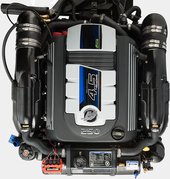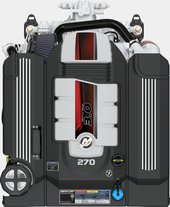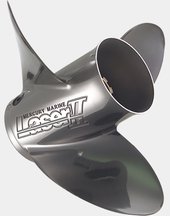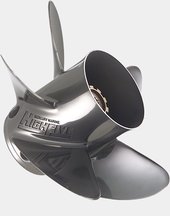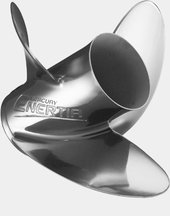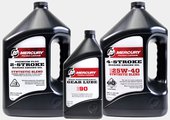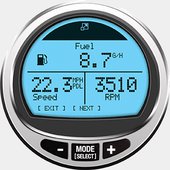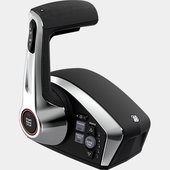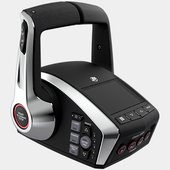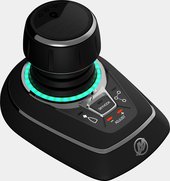
How Ocean Aid 360 Removed 275,000 Pounds of Marine Debris
Ocean Aid 360 holds community cleanup events in Florida and The Bahamas.

Marine debris in our oceans has become a global environmental crisis. According to the United Nations Environment Programme, “Plastics are polluting our planet and choking our ocean, harming human health, and damaging ecosystems vital to our livelihoods.”
Mercury Pro Team members Capt. Neill Holland and Danielle Dawley are doing something about it. In 2017, they co-founded Ocean Aid 360 in St. Petersburg, Florida, dedicated to removing marine debris from coastal waters and restoring marine habitat through innovative partnerships with coastal communities, private industry and the government at local, state and federal levels.
The Ocean Aid 360 initiative has already proven highly successful, and with their most recent cleanup, in September 2023, Ocean Aid 360 and their thousands of volunteers reached the milestone of 275,000 pounds of plastic and fishing equipment collected across 30 cleanup events to date.
Holland grew up boating in St. Petersburg and after pursuing a successful career in journalism, he “did a 360”, returning home in 2015 with Dawley to realize his childhood dream of becoming a charter fishing captain. Holland guides anglers fishing for tarpon, redfish, snook and trout in Tampa Bay from his beautifully restored 1969 Aquasport® 222, powered by a 150hp Mercury Pro XS® outboard.
It was Dawley’s dedication to preserving the marine environment that originally inspired the couple to create Ocean Aid 360. “Danielle would spend the second half of her lunch break every day walking the shoreline and picking up other people’s trash,” Holland said.
Once they co-founded the organization, Holland began using his writing skills to apply for grants to help fund its environmental initiatives. In 2018, Ocean Aid 360 received a grant from the National Oceanic and Atmospheric Administration (NOAA) for its innovative community-based Ghost Trap Rodeo project.
Ghost Trap Rodeos
Holland and Dawley created the Ghost Trap Rodeo program to combat a frequently overlooked problem that threatens marine fisheries in many coastal areas.
“In waters where we have commercial trap fisheries, every time a tropical storm comes through the area it creates a swell. If traps have not been removed, the swell can lift them off the sea floor and relocate them miles away. The trap gets separated from the fisherman and creates marine debris. It takes about five years for a trap to degrade,” Holland said.
These “ghost traps” quickly become underwater kill zones for marine life. Crustaceans and other sea creatures enter the trap and, unable to get back out, they die, in turn baiting the trap to attract more of the marine life upon which local ecosystems and economies depend. The trap line also can entangle manatees, sea turtles and dolphin, as well as get caught in boat propellers.
“The Florida Fish and Wildlife Conservation Commission (FWC) estimates this can happen to up to 10 percent of all traps affected by storms,” Holland said.
In October 2018, with the help of the NOAA grant, Ocean Aid 360 held its first Ghost Trap Rodeo in St. Petersburg to find and collect abandoned traps. The organization invited local fishing guides and other community stakeholders to participate, adding their boats to Ocean Aid 360’s fleet to scour local waters for ghost traps and remove them. This proved to be a highly successful formula, and the organization began holding Ghost Trap Rodeos during the closed fishing season in other Florida coastal communities. Ocean Aid 360 soon added separate events focused on non-trap marine debris to its calendar. It also expanded internationally through a formal partnership with the Government of The Bahamas.
In the month of September 2023, alone, the organization hosted two community cleanup events near Key West and Cape Canaveral, Florida, that collectively removed more than 15,000 pounds of marine debris from the water.
Holland and Dawley joined the Mercury Pro Team in 2021, and Ocean Aid 360 also has received aid from Mercury’s parent company Brunswick through the Brunswick Foundation. “Joining the Mercury Pro Team was really important for our organization,” Holland said. “We knew we could trust our gear and rely on our engines to maneuver safely around the fishery and [operate] without interruptions. It has allowed us to stay focused on the work at hand.”
Ocean Aid 360 hosts regular Ghost Trap Rodeos and Coastal Community Cleanups in areas around Florida and in The Bahamas. “Whether you’re a boater, angler or beachcomber, we look forward to seeing you at an upcoming event; and even if you can’t attend, we welcome your support,” Holland said.
For more information, please visit the Ocean Aid 360 website at www.oceanaid360.org and/or follow the organization on social media.
All trademarks are the property of their respective owners.


